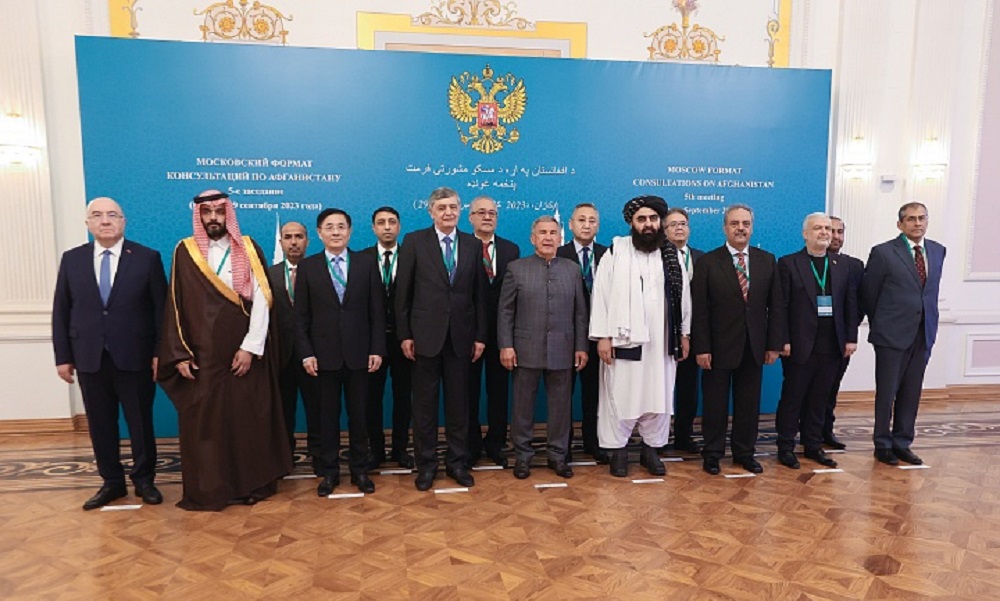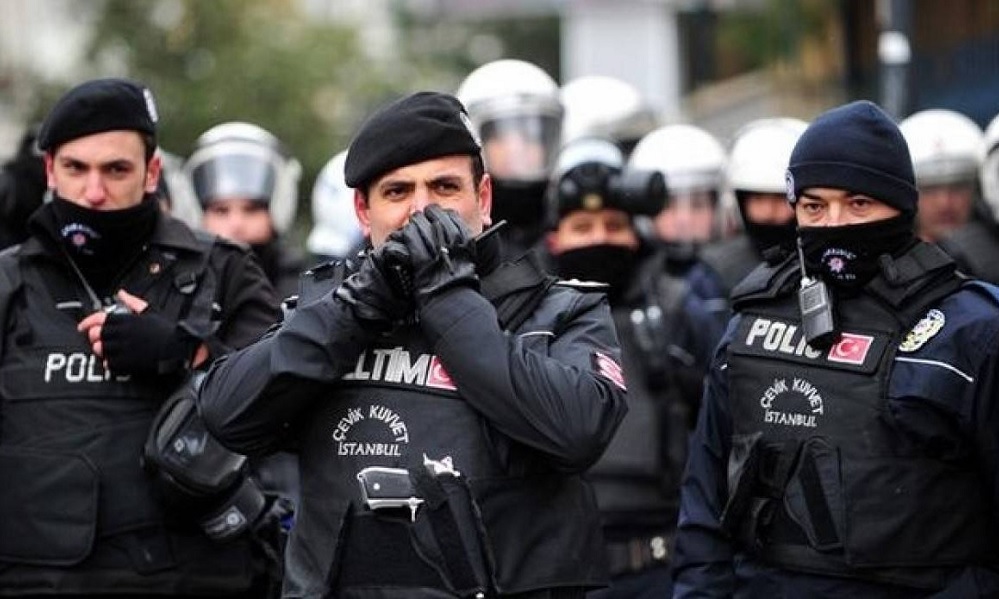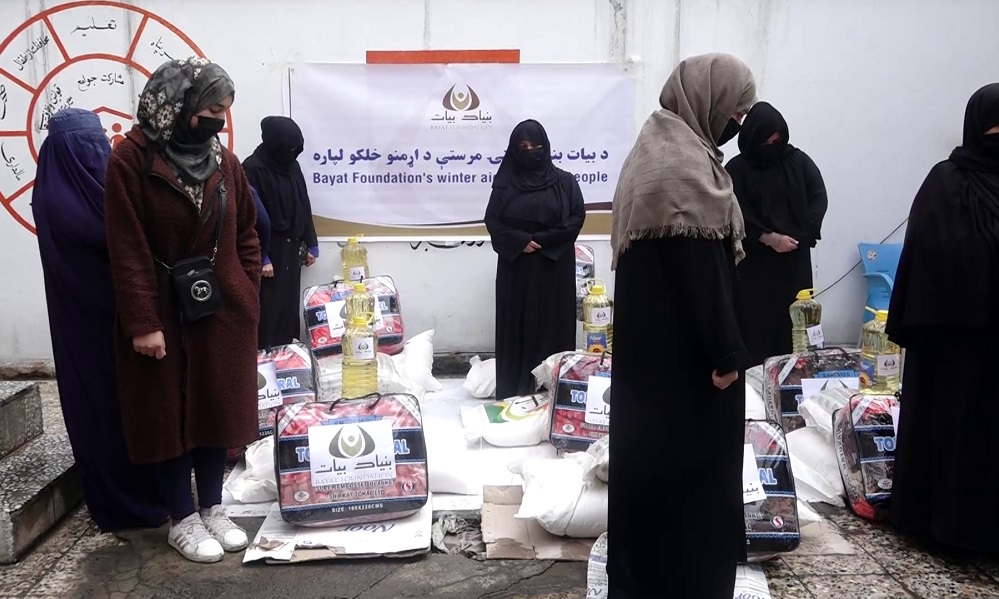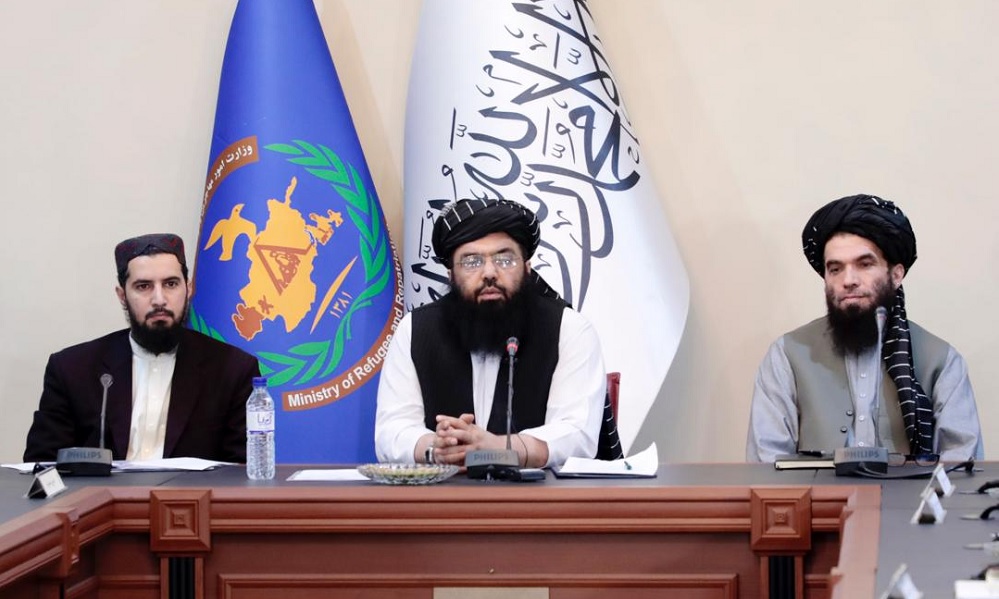Latest News
No progress in forming inclusive government in Afghanistan: Moscow Format participants

Participants of regional talks on Afghanistan in Russia’s Kazan have regretted that there has been “no progress” in forming a truly inclusive government in Afghanistan, reflecting the interests of all ethno-political groups of the country.
In a declaration issued by the Russia’s Foreign Ministry, the participants of the fifth Moscow Format meeting said that “despite the appointment of some individual representatives of various Afghan ethnicities to the Kabul administration, the parties observed no political pluralism in it.”
They urged the Afghan authorities to “establish a practical, outcome-oriented dialogue with the representatives of alternative ethno-political groups with a view to completing the process of peaceful settlement and forging a balanced, more broad-based, inclusive, accountable and responsible government in Afghanistan.”
The participants spoke out for respect of fundamental rights and freedoms in Afghanistan, including equal rights to work, education and justice, without distinction as to gender, ethnicity or religion. Stressed upon their concern about imposed restrictions on women’s employment and girls’ education. They urged the current Afghan authorities to promote the modern education in the schools conforming to international standards.
The parties noted with concern the difficult security situation in Afghanistan due to the intensification of the activities of terrorist groups, primarily Daesh. They appreciated the current Afghan authorities for their serious fight against Daesh and urged them to do the same against all terrorist groups. They called on the current Afghan authorities to take effective measures to dismantle, eliminate and prevent placement of all sorts of terrorist groups based in Afghanistan and to prevent the country from being the terrorism and instability hotspot and spreading to the regional states.
Participants of the meeting noted the reports on the reduction in poppy cultivation in Afghanistan caused by successful steps of the current Afghan authorities. They stressed the importance of continuing real and its effective anti-drug policy, including against industrial drug production, which indicate a serious and dangerous increase.
The parties noted the proposal of Iran to strengthen regional cooperation on Afghanistan by establishing a regional contact group to discuss the issues of common interests.
On September 29, 2023, the fifth meeting of the Moscow Format Consultations on Afghanistan at the level of special representatives and senior officials from China, India, Iran, Kazakhstan, Kyrgyzstan, Pakistan, Russia, Turkmenistan and Uzbekistan was held. The meeting was also attended by acting Minister of Foreign Affairs of Afghanistan. Representatives of Saudi Arabia, Qatar, United Arab Emirates and Türkiye were in attendance as guests of honor.
Latest News
Turkish intelligence captures a Daesh member near the Durand Line

Turkish intelligence agents have captured a senior member of Daesh near the Durand Line, reportedly preventing planned suicide attacks in Turkey and other countries, according to Turkey’s state-run Anadolu Agency on Monday.
The suspect, identified as Mehmet Goren, is a Turkish citizen. He was apprehended during a covert operation and transferred to Turkey. Details on the timing of the operation or the involvement of Afghan and Pakistani authorities were not disclosed.
According to the report, Goren had risen through the ranks of Daesh and was allegedly tasked with carrying out suicide bombings in Turkey, Pakistan, Afghanistan, and Europe.
Daesh has a history of deadly attacks in Turkey, including the January 1, 2017 shooting at an Istanbul nightclub that killed 39 people.
Anadolu Agency reported that Goren’s arrest also provided intelligence on the group’s recruitment strategies and planned activities.
Latest News
Dozens of needy families in Kabul receive winter aid from Bayat Foundation

Dozens of needy families in Kabul’s fifth district have received essential winter assistance from the Bayat Foundation, as part of ongoing efforts to ease hardship during the cold season and worsening economic conditions.
According to foundation officials, the aid package includes staple food items such as flour, rice, and cooking oil, along with warm blankets to help families cope with freezing temperatures. Haji Mohammad Ismail, Deputy Head of Bayat Foundation, said the distribution began in Kabul and will soon be expanded to other provinces.
“Our assistance includes flour, rice, cooking oil, and blankets,” Ismail said. “Today, we started distributing these items in Kabul’s fifth district, and God willing, the aid will reach other provinces in the near future.”
Afghanistan continues to face widespread poverty, unemployment, and food insecurity, with many families struggling to meet basic needs, particularly during winter when access to work and heating becomes more difficult.Humanitarian organizations and charitable foundations have stepped up relief efforts to support those most affected.
Beneficiaries welcomed the assistance, describing it as a lifeline. “May God bless you for helping the poor. We had nothing and no work,” said one recipient. Another added, “Thank you for your help. Our flour was almost finished.”
Bayat Foundation officials stressed that winter aid distributions will continue in Kabul and other provinces in the coming days, as part of their broader commitment to supporting needy families across the country.
Latest News
Nearly seven million Afghan refugees return home since Islamic Emirate’s takeover

Since the Islamic Emirate came to power, approximately 6.8 million Afghans have returned home, either voluntarily or forcibly, from neighboring countries and other nations, according to the Minister of Refugees and Repatriation.
Mawlawi Abdul Kabir, speaking at a meeting on finalizing a draft plan for a permanent migration solution in Afghanistan, added that 1.3 million Afghans have been internally displaced due to natural disasters during the same period.
With winter approaching, widespread poverty and severe cold are threatening thousands of lives. Meanwhile, the forced expulsion of Afghan migrants from neighboring countries, particularly Iran and Pakistan, continues.
The Islamic Emirate has repeatedly urged neighboring states to allow migrants to return voluntarily. According to UNHCR, over two million Afghans have returned from Iran and Pakistan since the start of 2025.
-

 Latest News3 days ago
Latest News3 days agoAfghan border forces prevent illegal entry of hundreds into Iran
-

 Latest News3 days ago
Latest News3 days agoPakistan summons Afghan diplomat over deadly attack in North Waziristan
-

 Latest News2 days ago
Latest News2 days agoAfghan health minister calls for medical cooperation between Kabul and New Delhi
-

 Latest News1 day ago
Latest News1 day agoAfghanistan signs 30-year deal for marble mining in Daikundi
-

 Latest News3 days ago
Latest News3 days agoJapan allocates nearly $20 million in humanitarian aid for Afghanistan
-

 Latest News2 days ago
Latest News2 days agoKarzai urges reopening of girls’ schools and universities for Afghanistan’s bright future
-

 Health5 days ago
Health5 days agoAfghanistan seeks India’s support in standardizing traditional medicine
-

 World5 days ago
World5 days agoUS readies new Russia sanctions if Putin rejects peace deal, Bloomberg News reports
























